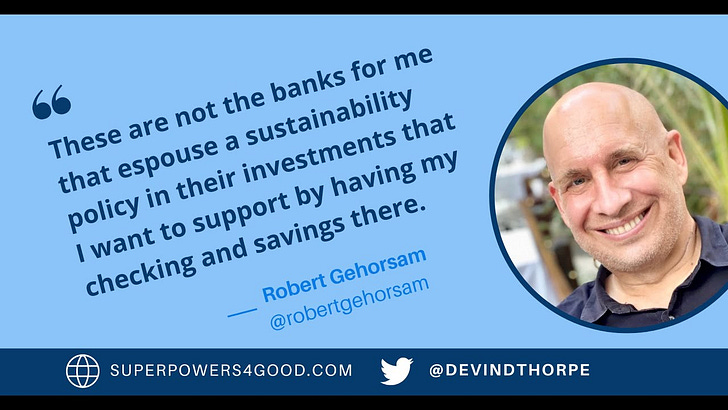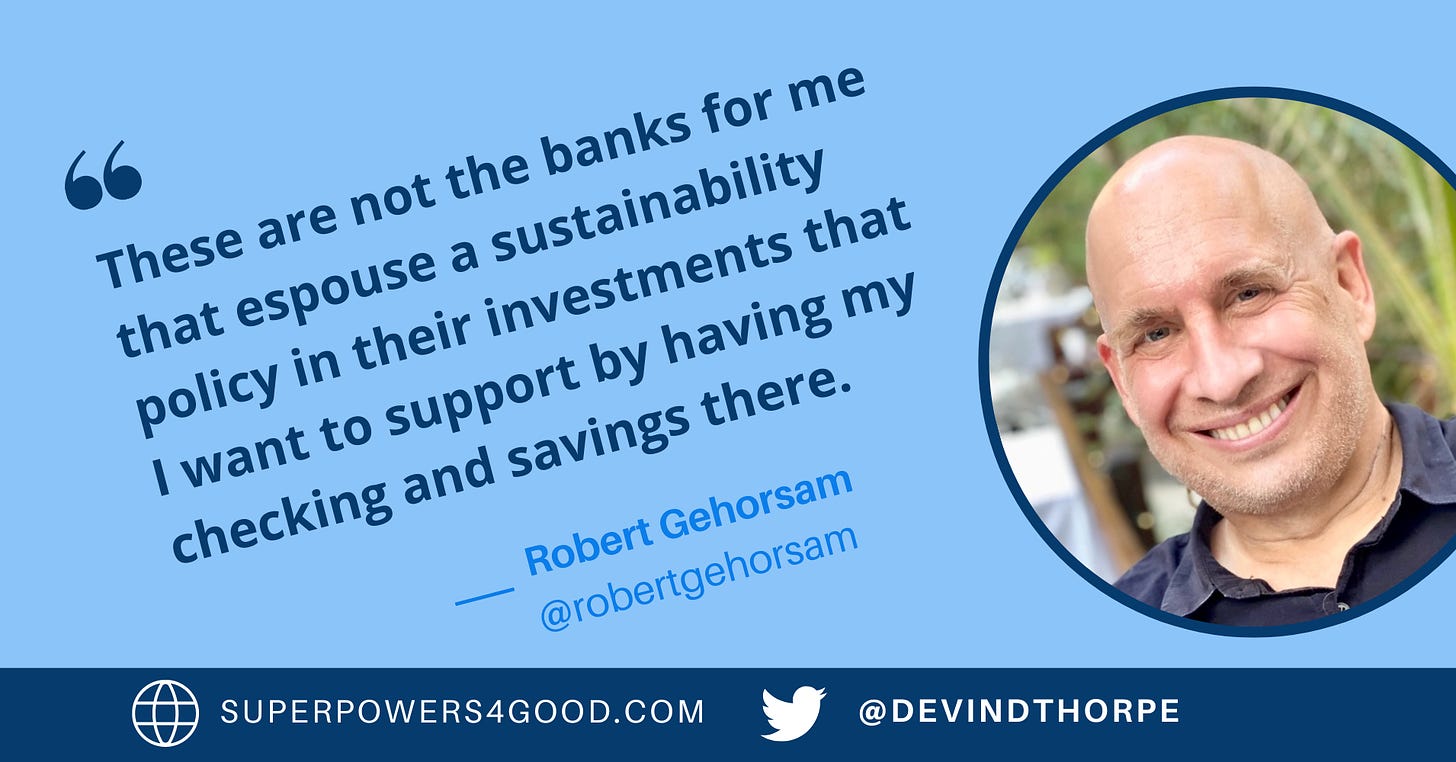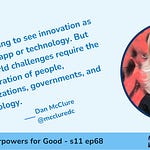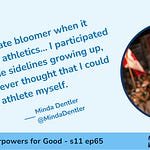When you purchase an item after clicking a link from this post, we may earn an affiliate commission.
Devin: What do you see as your superpower?
Robert: The thing that gets the neurons firing and a great deal of satisfaction is this desire and ability to connect people and to connect ideas in ways that have a happy serendipity to them.
Robert Gehorsam, a contributor to the bestseller The Carbon Almanac, says, “This project was the brainchild of an old good friend of mine, Seth Godin, who’s known for many other books and entrepreneurship.”
Robert recalls an early conversation with Seth about climate change. The two concluded that the problem preventing progress is not science, technology or innovation. Instead, they concluded, “It’s the mystery of human behavior, why we don’t activate our brains and our behaviors at a level that is appropriate to the emergency that’s upon us.”
Following that conversation, Seth began assembling a team of volunteers, including Robert, to create The Carbon Almanac. The work happened quickly. Three hundred people came together to research, write, edit, fact-check, illustrate, and design the book, delivering production-ready files to Penguin in just five months.
“This was not just about doing a book,” Robert says. “It’s really about a movement. I suppose we’re up to 2500 people in 92 countries—all volunteer.”
In addition to the book, the team created a website, a children’s book, a teacher’s guide, a podcast, a Linkedin learning course, and a photo book with help from Getty Images.
With the goal of changing behavior, Robert says the volunteers had a clear objective. “It’s really about giving people the facts and the information in a way and in a style and an accessible way so that they can feel they can trust it.”
The next step was to make it actionable. “Because many of us who accept that manmade climate change is a real thing are overwhelmed by the enormity of it, it’s like, ‘Well, what can I do?’” Robert adds, “The book tries to give you both hope and practical advice on what you can do.”
The process of creating the book was unusual, if not unheard of. With hundreds of volunteers working in a network without a formal hierarchy, people found their own ways to contribute. Robert describes it this way:
People would simply say, “You know what? I'll volunteer to lead writing the section on X.”
One person, a lawyer in San Francisco, realized we needed a production management process. Things have to come in in a certain way, at a certain time. She stepped up to basically be the managing editor. In a way, the sort of egoless, goodwill, sense of common purpose that we modeled in creating all of this.
Robert wrote several sections to the Almanac. He says, “The one I find most interesting was a piece on really explaining that where you bank, where your checking and savings accounts are, makes a difference.”
He noted that most people in the U.S. bank with one of just four major banks. He learned a lot doing the research for the piece. “These are not the banks for me that espouse a sustainability policy in their investments that I want to support by having my checking and savings there.”
He wrote about how to move your banking relationships. He notes that it is straightforward to do technically but says, “It is psychologically so hard!”
Once you have moved your banking relationships, he recommends writing to the bank you’ve left to let them know why. He also suggests you post it on social media so your friends know and can follow your example.
“We’re more likely to believe things based on who’s around us, either virtually or physically in our network, than we are to arrive at those beliefs ourselves,” he says, explaining the power of your public declarations.
While writing the book, Robert matured his ability to connect ideas and people as a superpower.
How to Develop Connecting People and Ideas As a Superpower
Robert loves to connect people and ideas. He shared a couple of examples:
I spend a fair amount of my time mentoring undergrads at my alma mater. As they get ready to go into the world—and college is the world too—but as they get ready to think about their work life, they are hesitant to ask, “Oh, can you introduce me to someone in some field, this and that?”
And I say, “You don't understand. You're thinking I'm viewing it as transactional. It's a great joy.”
It's for me, many of my peers and friends and colleagues and this connectivity—I guess I've become good at it, if only because others appreciate it.
Another example comes from mentoring startup entrepreneurs:
We're going through questions. So it is a financial literacy startup. It is a counter to the sort of trading frenzy approach of a lot of fintech these days. It really requires a different mindset. As they've been thinking about product design and user experience and all, I'm suggesting to them that they look at not just the research but the actual implementations of applications that are in the mindfulness and wellbeing space. Because, what I would say to them is, “You are trying to help people develop a kind of self-regulation, even though they're thinking it's just about investing, it's really about self-regulation for thinking about time frames.”
To learn and develop this strength, Robert suggests developing related strengths.
First, he says, “I think a prerequisite for it is a kind of enthusiasm for the world and a sense of curiosity that things might lead to unexpected places.”
Pair your curiosity with kindness. “I’ve sort of developed much more of a sense of kindness for people that are struggling in some way or another,” Robert says. “While you can’t always do everything for them, that desire to help inevitably leads to other connections.”
By following Robert’s example and advice, you can develop connecting people and ideas as a superpower that enables you to do more good in the world.
























Hundreds Collaborated on Seth Godin's Brainchild The Carbon Almanac